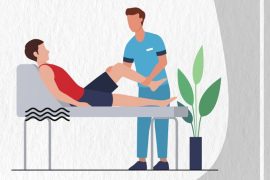Forget searching for mythical anti-aging remedies—new research from the University of Copenhagen suggests that the path to lasting health in your golden years might be simpler and more achievable than you think: weightlifting. This recent study has shown that consistent weight training for just one year, even if started in your mid-60s, can significantly enhance and preserve leg muscle strength for years to come. Given that leg strength is a crucial indicator of overall health and mobility in older adults, this finding is particularly significant.
The Benefits of Weightlifting for Older Adults
Weightlifting isn’t only for the young or the gym-obsessed. It’s a powerful tool for older individuals to combat frailty, maintain independence, and age healthily. Staying active is vital for a healthy, independent lifestyle, especially as we age. Despite its association with younger gym-goers, weightlifting offers numerous benefits for older adults, including:
Combating Sarcopenia: Sarcopenia, the natural decline in muscle mass with age, is a significant concern. Weightlifting helps address this issue by specifically targeting and strengthening key muscle groups such as the quadriceps, hamstrings, and calves. This not only enhances mobility but also improves balance and joint strength, making everyday activities easier.
Bone Health: Weight-bearing exercises like weightlifting place controlled stress on your joints, which stimulates bone remodeling. This process helps maintain bone density and ensures optimal joint function, which is crucial for preventing osteoporosis and related issues.
Improved Proprioception: Weightlifting enhances proprioception, or the body’s awareness of its position in space. This improved awareness can lead to better balance, coordination, and agility, which significantly reduces the risk of falls—a common concern for older adults.
Recommendations for Older Adults:
- Start Gradually: Beginners should start with lighter weights and gradually increase the resistance as strength improves. It’s essential to focus on proper form to prevent injuries.
- Include Variety: A well-rounded resistance training program should include exercises targeting different muscle groups. This can be achieved through free weights, resistance bands, or weight machines.
- Consult a Professional: Older adults should consult with a healthcare provider or fitness professional to design a safe and effective resistance training program tailored to their individual needs and health conditions.
- Combine with Other Activities: Weightlifting should be complemented with other forms of exercise, such as aerobic activities and flexibility exercises, to ensure a balanced fitness regimen.
Safety and Proper Technique
Safety is paramount when starting a weightlifting routine, the importance of consulting with a healthcare provider before beginning any weight training program. This ensures that your body is prepared for the demands of weightlifting. Additionally, learning proper form and technique from a qualified professional is crucial to prevent injuries.
A gradual progression in intensity and volume, along with incorporating proper warm-ups, cool-downs, and rest days, is essential for a safe and effective weightlifting program.
A Holistic Fitness Approach
For a well-rounded fitness experience, complementing weightlifting with flexibility and balance training. This holistic approach enhances overall fitness, reduces injury risk, and helps you move with confidence.
Weightlifting in your 60s is not about setting unrealistic goals or pushing your limits. It’s about empowering yourself to live a stronger, healthier, and more independent life. With the right guidance and a commitment to safety, you can enjoy the numerous benefits of weightlifting and embrace a new chapter of strength and confidence in your later years.
Disclaimer:
The information contained in this article is for educational and informational purposes only and is not intended as a health advice. We would ask you to consult a qualified professional or medical expert to gain additional knowledge before you choose to consume any product or perform any exercise.







